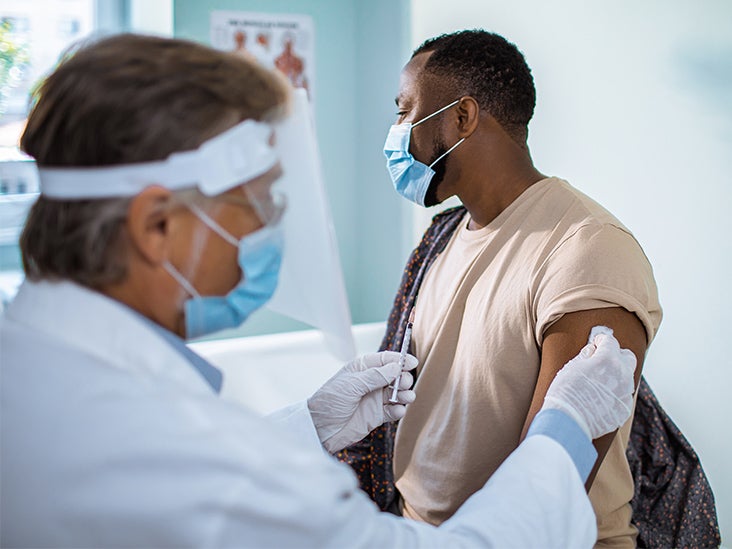HIT is the medical abbreviation for Heparin-Induced Thrombocytopenia. This is a rare, life-threatening complication after receiving heparin as a treatment for myocardial infarction or thromboembolism. In 2021, similar complications are seen in people who received the SARS-CoV-2 vaccination. In this article, we talk about HIT (Heparin Induced thrombocytopenia), Vaccine-induced Immune thrombotic thrombocytopenia (VITT), and discuss if it is safe for people with a history of HIT to receive the vaccine.
What is Heparin?
Heparin is a blood thinner, also known as an anticoagulant. It works by blocking the clotting factors in the blood, thus reducing clot formation and preventing thromboembolism. It is available in injection forms, either into the vein (intravenous) or under the skin (subcutaneous). Heparin is often used as a treatment for myocardial infarction (where there is a blood clot in one of your heart vessels and your heart is deprived of oxygen), venous thromboembolism (when there is a blood clot in the vessels of your limb and you have pain), unstable angina (chest pain due to an incomplete block in your heart vessel), or simply as prophylaxis of the above conditions.
What is HIT?
Heparin Induced thrombocytonia (HIT) is an autoimmune sequela after exposure to heparin. It could be exposure to unfractionated heparin or low molecular weight heparin (LWMH). It is a life-threatening condition, and it is confusing to diagnose as it can present with both thrombocytopenia (low platelets) and thrombosis (clots in the blood vessels). Before diving into how HIT happens, it is useful to note that platelet is the essential component needed to prevent bleeding.
Studies found that the body produces an antibody after exposure to heparin, known as the HIT antibodies. These antibodies are directed towards the platelets, which are used to prevent bleeding. As the antibodies bind to the platelets, our immune system recognizes this and moves to attack, subsequently consuming these faulty platelets. As a result, patients with HIT present with low platelet levels, putting them at significant risk of bleeding. To complicate things further, our body tries to compensate for the low platelet levels by thickening the blood via other mechanisms, such as making the remaining platelets stickier than usual. This in turn lead to more clot formation. Some patients threfore present with blood clots in the legs and organ failure due to insufficient blood flow.
Vaccine-Induced Immune Thrombotic Thrombocytopenia (VITT)
In 2021, some people who received the viral vector Covid-19 vaccines (AstraZeneca/ University of Oxford/Serum Institute of India, and Janssen/Johnson and Johnson) were found to present with a similar prothrombotic state.
The key for the covid-19 virus to infect human cells is via the spike proteins on the virus’ surface. Vaccines such as AstraZeneca/Johnson and Johnson utilized another harmless virus to deliver the spike proteins of the Covid-19 virus into the body, and conditioned the immune system to build immunity toward the virus. In the future, when the actual Covid-19 virus invades the body, the body would already have the memory to build antibodies against the virus. In VITT, the body produces antibodies that happen to attack the platelets instead, thus resulting in a prothrombotic picture. People commonly present with headaches, abdominal pain, vomiting, sudden shortness of breath, chest pain, or pain in the limbs.
Further studies found that the antibodies produced in VITT are similar to HIT, and the incidence of this complication is low – combined studies reported that the risk of VITT in vector-based vaccines is 3.8 per million (1 in 263,000).

Can People with a History of HIT Receive the Covid-19 Vaccine?
The World Health Organization (WHO) acknowledges the prothrombotic complication after receiving vector-based vaccines and came out with a guide for management. The guideline states that any adenovirus vector based vaccines must be avoided in patients with a history of HIT, or any other thrombotic conditions. Look at jenis vaksin covid 19 for more info.
References
- MIMS. Heparin. Indications and Dosage. https://www.mims.com/malaysia/drug/info/heparin?mtype=generic
- Crowther M. Clinical presentation and diagnosis of heparin-induced thrombocytopenia.https://www.uptodate.com/contents/clinical-presentation-and-diagnosis-of-heparin-induced-thrombocytopenia?search=heparin%20induced%20thrombocytopenia&source=search_result&selectedTitle=1~150&usage_type=default&display_rank=1
- Warkentin TE, Cuker A. COVID-19: Vaccine-induced immune thrombotic thrombocytopenia (VITT). Update May. 2021;7.https://www.uptodate.com/contents/covid-19-vaccine-induced-immune-thrombotic-thrombocytopenia-vitt?sectionName=MANAGEMENT&search=heparin%20induced%20thrombocytopenia&topicRef=90261&anchor=H3520106838&source=see_link#H3520106838
- World Health Organization. Guidance for clinical case management of thrombosis with thrombocytopenia syndrome (TTS) following vaccination to prevent coronavirus disease (COVID-19) 2021.https://apps.who.int/iris/bitstream/handle/10665/342999/WHO-2019-nCoV-TTS-2021.1-eng.pdf?sequence=1&isAllowed=y




